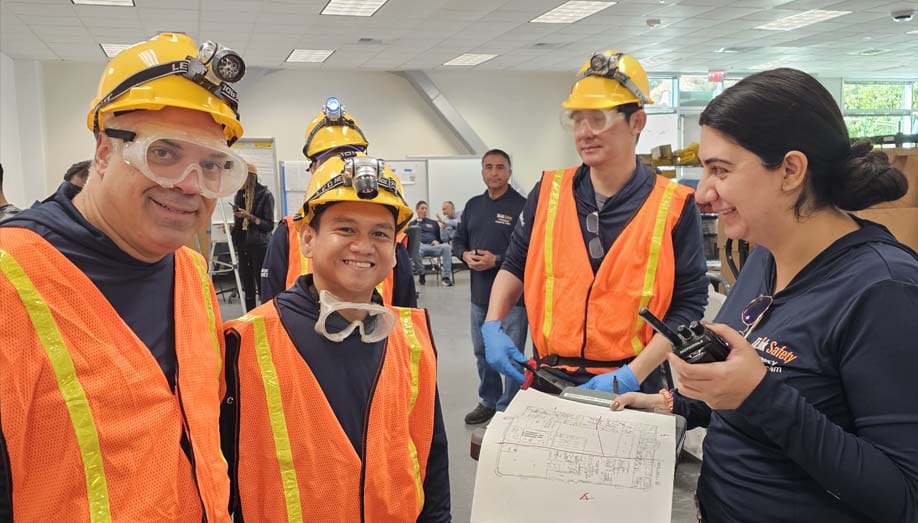Emergency Medical Response Training
Professional responders can’t always get to your company in time. And in an emergency, time is crucial.
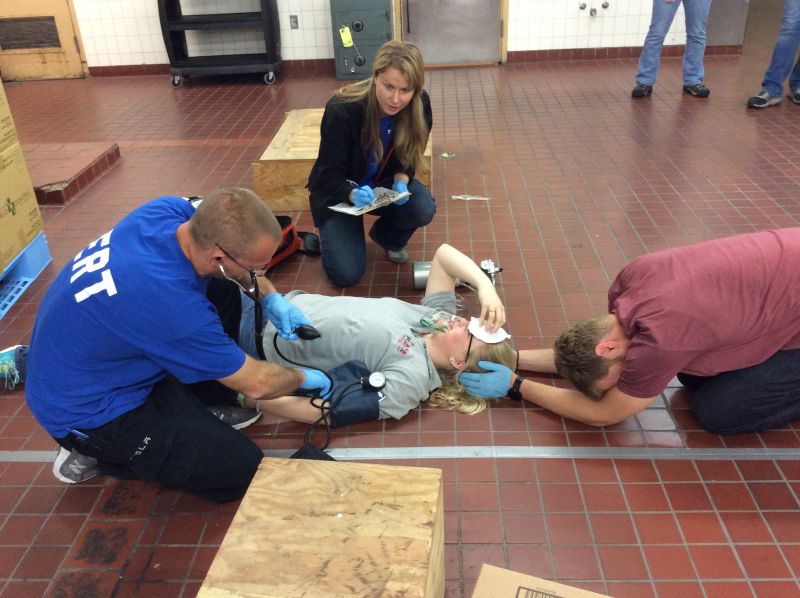
Empower your employees by providing life-saving emergency response training in your workplace.
We offer many comprehensive courses to protect the safety and the health of your employees and visitors.
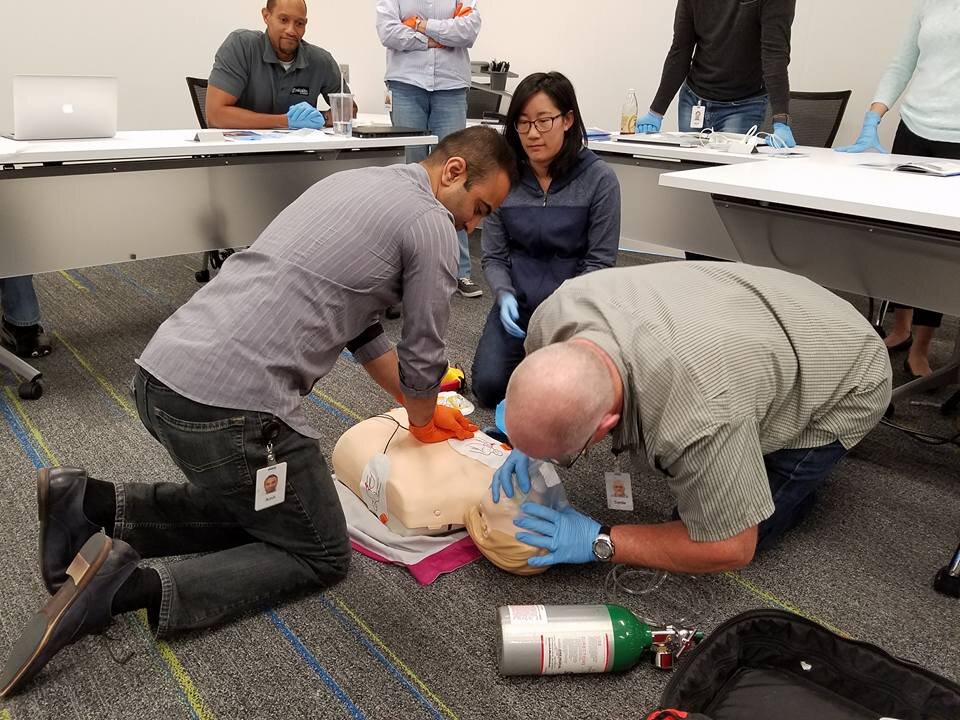
Cardio Pulmonary Resuscitation
Approved Medic First Aid & American Safety & Health Institute Training Center.
When a person goes into sudden cardiac arrest, CPR helps keep them alive before the professional responders arrive. In fact, according to the American Heart Association, immediate CPR can double or even triple a victim’s chances of survival.
Not only do we offer certification programs in CPR and First Aid for your in-house emergency response teams, we can also certify your in-house emergency response team members to become instructors themselves.
Approved Medic First Aid & American Safety & Health Institute Training Center.
When a person goes into sudden cardiac arrest, CPR helps keep them alive before the professional responders arrive. In fact, according to the American Heart Association, immediate CPR can double or even triple a victim’s chances of survival.
Not only do we offer certification programs in CPR and First Aid for your in-house emergency response teams, we can also certify your in-house emergency response team members to become instructors themselves.
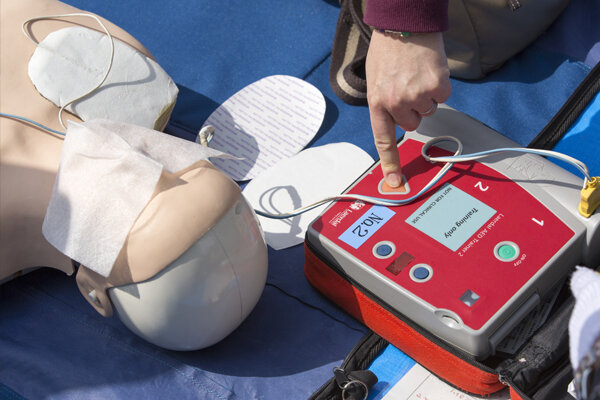
Automated External Defribillator (AED)
AEDs are portable electronic devices that allow minimally trained people to provide lifesaving defibrillation during sudden cardiac arrest. Studies show up to a 50% success rate of survival when AEDs are deployed within the first few minutes of cardiac arrest. AED’s are so effective in the early minutes of cardiac arrest, they are becoming commonplace in gyms, schools, airports, and businesses.
We train you how to use this life-saving device. AED training can be combined with CPR and First Aid Training.
AEDs are portable electronic devices that allow minimally trained people to provide lifesaving defibrillation during sudden cardiac arrest. Studies show up to a 50% success rate of survival when AEDs are deployed within the first few minutes of cardiac arrest. AED’s are so effective in the early minutes of cardiac arrest, they are becoming commonplace in gyms, schools, airports, and businesses.
We train you how to use this life-saving device. AED training can be combined with CPR and First Aid Training.
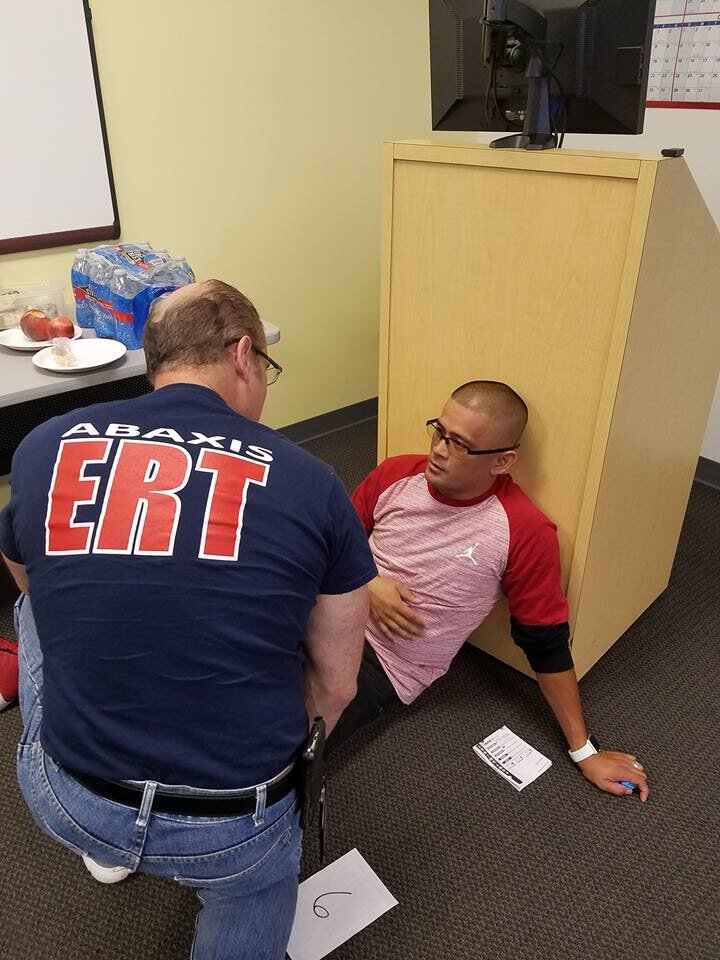
First Aid
First Aid is considered to be emergency care given to an ill or injured person.
Minutes can often make the difference, so stabilizing the individual until professional responders arrive is critical to a more successful outcome. Chest pain, diabetic emergencies, seizures, the control of bleeding and more are all topics covered in our first aid course.
First Aid is considered to be emergency care given to an ill or injured person.
Minutes can often make the difference, so stabilizing the individual until professional responders arrive is critical to a more successful outcome. Chest pain, diabetic emergencies, seizures, the control of bleeding and more are all topics covered in our first aid course.
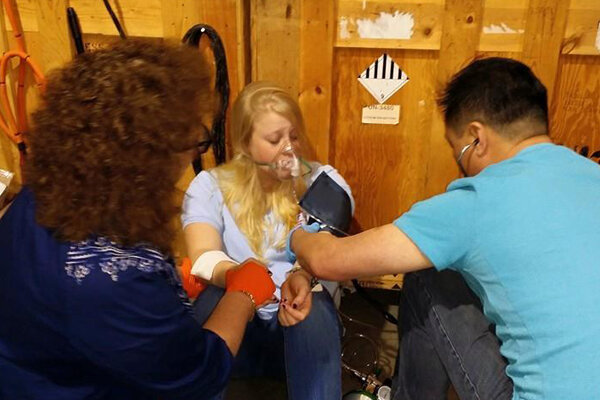
Emergency Oxygen
When serious illness or injury occurs, the body’s ability to process oxygen can be compromised.
We provide initial and annual certification in the use of Emergency Oxygen, which is an effective adjunct therapy when a person has serious bleeding, difficulty breathing, chest pain, seizure, stroke, or cardiac arrest.
When serious illness or injury occurs, the body’s ability to process oxygen can be compromised.
We provide initial and annual certification in the use of Emergency Oxygen, which is an effective adjunct therapy when a person has serious bleeding, difficulty breathing, chest pain, seizure, stroke, or cardiac arrest.

Bloodborne Pathogens
Some employees can face significant health risk from occupational exposure to blood or other potentially infectious materials. The OSHA Bloodborne Pathogen Standard requires annual training for all individuals who could potentially come in contact with bloodborne pathogens or other potentially infectious materials. These individuals include emergency response team members, firefighters, healthcare providers, some types of lab workers dealing with biological hazards and other first responders.
We provide initial and annual certification in Bloodborne Pathogens in the workplace.
Some employees can face significant health risk from occupational exposure to blood or other potentially infectious materials. The OSHA Bloodborne Pathogen Standard requires annual training for all individuals who could potentially come in contact with bloodborne pathogens or other potentially infectious materials. These individuals include emergency response team members, firefighters, healthcare providers, some types of lab workers dealing with biological hazards and other first responders.
We provide initial and annual certification in Bloodborne Pathogens in the workplace.

